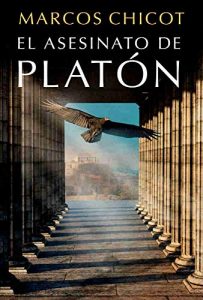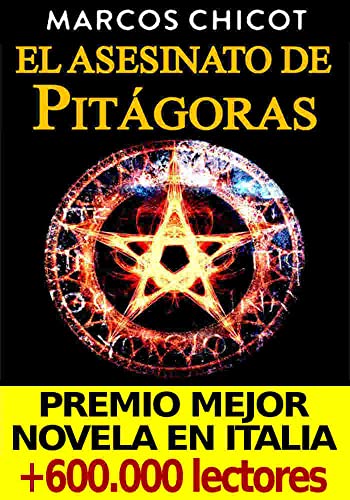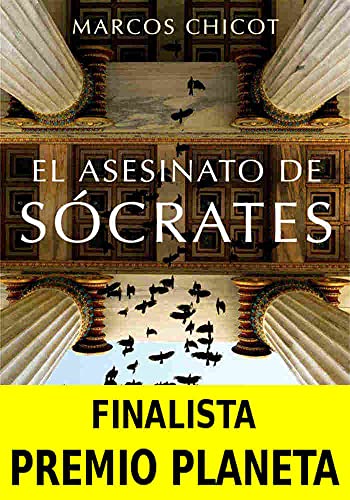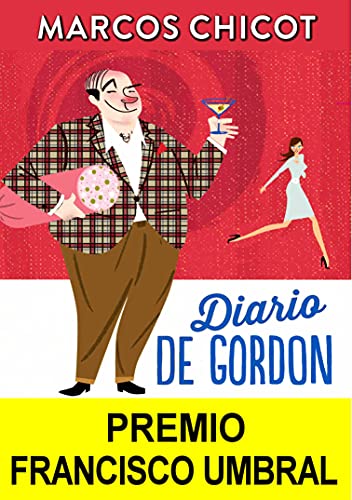Psychology and literature have much to do, beyond their simple humanistic coincidence (under the scientific background of psychology). Without psychology, there is no literature, or at least there would be no novel, the genre that most dominates the art of the literary in terms of volume of readers.
The characters in a novel must contribute, above all, their psychology. The writer is a bit of a psychoanalyst who explores behaviors and reactions. But the most fascinating of all is that a psychological profile can be as varied as the human being's own contradictions, you just need to make it credible without forcing it, in that magical literary drift of action and openness to the wide range of plausible consequences.
And so we get to Mark Chicot, economist, but above all psychologist and writer. Graduated in this exhaustive knowledge of the psyche and finally oriented towards narrative as a complement to his humanistic vocation.
In the combination, the psychologist put himself at the service of his characters, moved between mystery plots with that intention to transform reality. From the remote times of humanity as a civilization to the present, as apparently self-sufficient as it is loaded with similar transcendental enigmas that return us to magic, the unknown and the esoteric.
Read to Mark Chicot is an adventure in which characters constructed in detail lead us between mysterious historical settings that end up splashing our reality. Behind the enigmatic arguments of this author we are faced with an encounter with the most universal philosophy, the one that has accompanied the human being from the first use of reason. Achieving that balance between the transcendent and entertainment filled with narrative tension is a matter of the author's good work, a mixture to be enjoyed while approaching great questions.
Top 3 recommended novels by Marcos Chicot
The murder of Plato
In the wide space of historical fiction, Mark Chicot He is one of the most experienced storytellers with his particular plots of maximum tension. The question for Chicot is to achieve narrative alchemy. Thus, rigorously respecting, on the one hand, scenarios, but also using them to further enhance that thriller aftertaste, this writer manages to disseminate and entertain like few others.
The trick is to envision past times as thrillers per se. And it is that the darkness of other times, the dawn of reason and the darkness of remote beliefs are the most hostile scenario that we can imagine.
After finishing Pythagoras and Socrates, Marcos Chicot returns with an extraordinary novel about Plato, the most influential philosopher in Western history.
Altea, one of Plato's most brilliant disciples, does not know that her life and that of the baby she is expecting are in danger and that she has the enemy in her own home. For his part, his friend and teacher Plato risks his life to try to make his great project come true: to unite politics and philosophy so that reason, justice and wisdom rule, instead of the empty rhetoric of demagogues. , corruption and ignorance.
As a backdrop, the rise of a new power and a general with an invincible aura put the survival of both Sparta and Athens at stake.
Tension, intrigue, betrayals and a love that defies its time come together in a novel that flawlessly recreates the tapestry of Classical Greece and the thought of the most important philosopher in history.
The assassination of Pythagoras
The conspiracies have been going on since man has been a man. The wills of power create the most ominous monsters capable of assassinating even with the Machiavellian idea of prospering at all costs or of refuting the ideas of the contrary.The uncertain cause of the real death of Pythagoras is not even painted for the title of the novel reach high flights.
But really it is not about giving a new interpretation to ancient history but about adorning a time in ancient Greece in which reason began to materialize in solid and written thought, a time in which all the sciences and general wisdom took off. .
And as always happens, shadows also appear among the greatest lights of humanity. Ariadna and the Egyptian Akenón will tackle a murder case that haunts Pythagoras himself and his appointment of new teachers from his school.
The remoteness of the facts allows a greater integration of the fiction proposed by the author, achieving a recognizable narrative in the real events that have survived to this day with a narrative mechanism that adorns History until the conception of new literary myths.
The murder of Socrates
If a formula has worked, why not expand on it? That must have been one of the foundations for writing this new novel as a continuation of The Assassination of Pythagoras.
And yet, it must be difficult to face a kind of continuation for a novel that worked so well. But of course, the idea of tackling a new historical fiction around the character of Socrates, of whom no writings are known and who, However, he served as a reference for all the great Greek thinkers, offering the guarantees and appeal of the unfathomable character, the thinker of thinkers and dead from hemlock in his "conscientious objection" to the existence of the official gods.
In addition to the character, the author also takes advantage of the turbulent years of the XNUMXth century BC, in which Greece was torn between universal conflicts that have survived to this day adorned by epic and mythology but that would really mean a river of blood towards the Aegean Sea .
Thus, between the character of Socrates and his historical time, the author manages to recreate and entertain, moving his homegrown characters towards a high-flying historical fiction.
Other recommended books by Marcos Chicot
Gordon's Journal
The first novel published by Marcos Chicot aimed at a very different genre than the one that finally brought him success. Gordon is a replica of Ignatius Really (The conspiracy of fools) who ended up acquiring a role as brilliant as that of John Kennedy Toole's own reference.
An acid-tinged comedy about the grotesque of a maniacal but confident character, a guy whose world has been constructed perfectly adjusted to his childish-psychotic mentality.
Gordon's deformity leads us through extravagant situations due to his conviction that everyone who drives down that road in the wrong direction is wrong.
Gordon is a Messiah of our days, a nini of taytantos capable of adjusting reality to his prism of winner under which all his vital miseries and defeats are piling up.
But deep down Gordon has good intentions. He only pretends to do good, his good, and for every place he passes he ends up leaving his quirky superhero trail.




